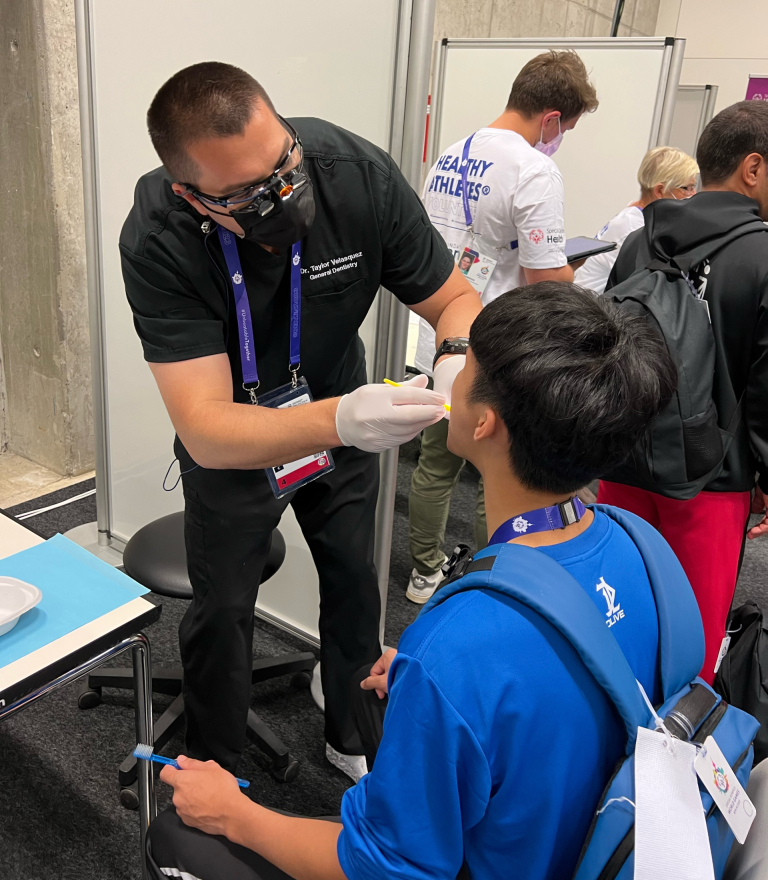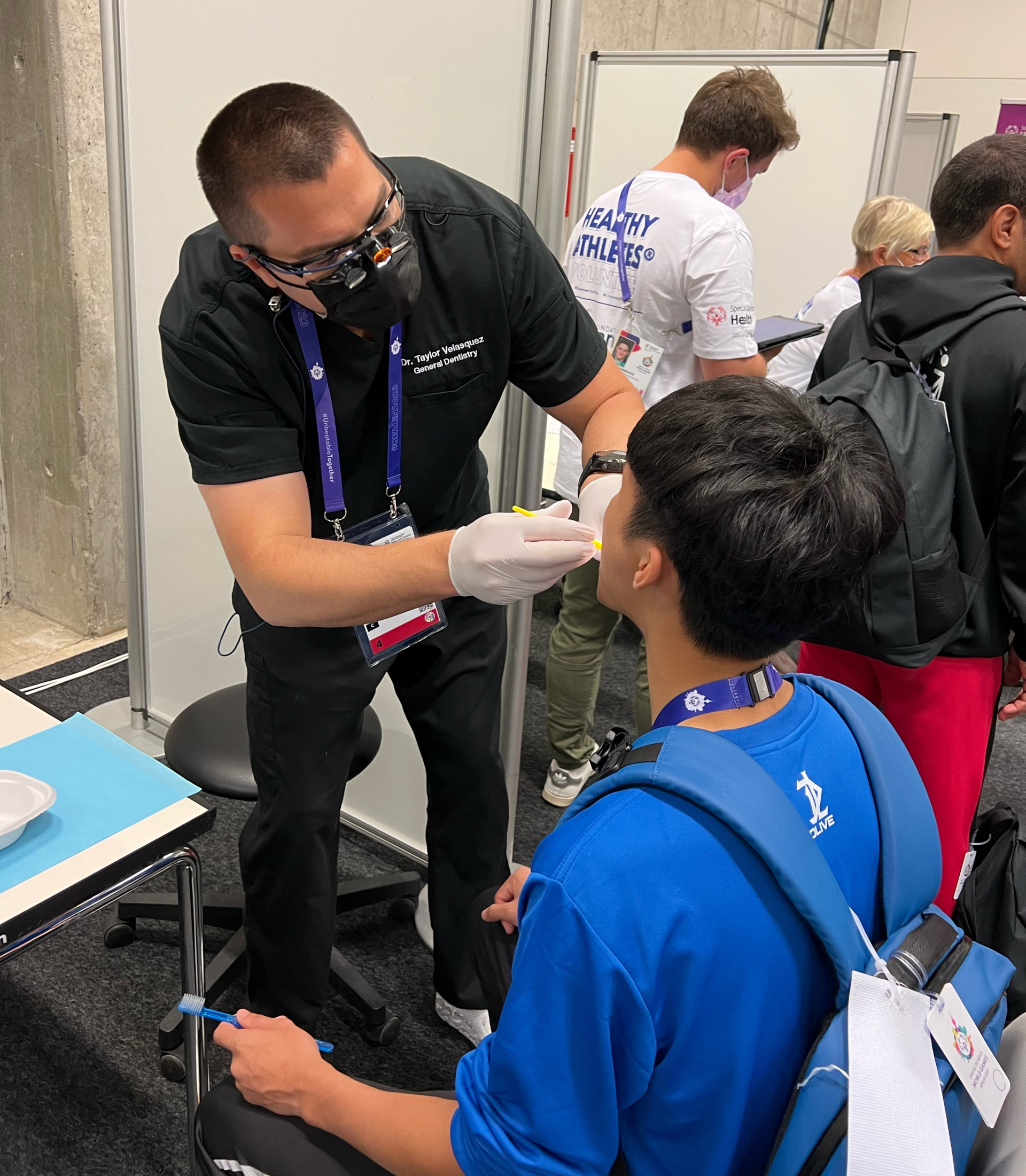ATSU-ASDOH professor follows his passion for Special Olympics, dentistry, and research
Posted: January 2, 2024
This past June, ATSU-ASDOH assistant professor Taylor Velasquez, DMD, MPH, ’19, conducted research at the Special Olympics World Games in Berlin, Germany, representing ATSU as the only American university approved to do research at this level.
This monumental opportunity for Dr. Velasquez can trace its roots back eight years ago, when, as a first-year dental student at ATSU-ASDOH in Mesa, Arizona, Dr. Velasquez was the first student selected to participate in the A.T. Still Research Institute’s (ATSRI) Student Clinician Researcher Development Program, sparking his passion for research, which continues at ATSRI today.
“Research is unique in the sense you can kind of play with what you want to. If your interests are in special needs, or in orthodontics, you can learn more about that field by doing research,” he says.
Growing up as the oldest of five, Dr. Velasquez remembers many difficult trips to the dentist with his siblings, specifically with his two younger brothers who have autism.
Not only did his brothers influence his decision to pursue dentistry, but through his brother, Gabriel, Dr. Velasquez was first exposed to Special Olympics. Since 2008, Dr. Velasquez has volunteered at the state and national level games.
“I’ve been doing Special Olympics for a long time, and it’s a very integral part of my life,” he says.
At the Special Olympics World Games, Dr. Velasquez screened athletes for four days as a volunteer dentist with Special Smiles, a section of the Special Olympics’ Healthy Athletes program, which provides free health screenings for participating athletes.
He did not provide direct dental care, but athletes were instead referred to local dentists who were able to see them on an emergency basis. For many athletes, meeting Dr. Velasquez was their first experience meeting an American citizen.
“They usually had their coach with them to help translate,” he says. “Meeting the athletes for the first time and trying to communicate was a fun experience because I was just trying to learn a phrase to say, ‘Hi, how are you?’ in that language to make them a little bit more comfortable.”
Showing the coaches the importance of their athlete’s need for dental care was an important part of Dr.
Velasquez’s process during each screening as well.
“Showing the coach, ‘Look at this tooth right here, this tooth is really hurting him, even though he’s not
complaining about it.’ Education, the importance of it, the lack of care in their home country, played a big part in it,” he says.
Now that Dr. Velasquez has returned to the U.S., the second step of the research process will begin at ATSRI.
Ann Eshenaur Spolarich, PhD, RDH, FSCDH, professor, assistant dean for research; Maureen Perry, DDS, MPA, MAEd, associate dean, Advanced Care Clinic; Karen Fallone, RDH, instructor; Marc Shlossman, DDS, MS, associate professor; and Lanvi Lu, D2, along with other students and collaborators from ATSRI, will work to analyze data recovered from the games.
“As one of the ATSRI directors, I am thrilled to see the goals of this program have been fully realized,” says Dr. Spolarich. “We are so happy to have Dr. Velasquez back at ATSU-ASDOH as a new faculty member and that he has already started the continuation of his research journey.”
Some of the questions ATSRI will analyze during data collection include what areas of the world have the most significant gaps in dental care, why certain countries lack resources, and what outreach needs to be done to address these disparities.
“This data could hopefully impact patients on a real level by giving them care in that proper area,” Dr.
Velasquez explains.
In alignment with the University’s commitment to serving the underserved, the aim is to help determine how Special Olympics can place more dental care resources in communities needing it most.
Dr. Velasquez adds, “I was just a volunteer, so I try not to make it about me as much because I think the whole mindset of ATSU-ASDOH is community first. It’s all about the athletes. It’s all about the community. It’s how we have jobs and why we work.””
